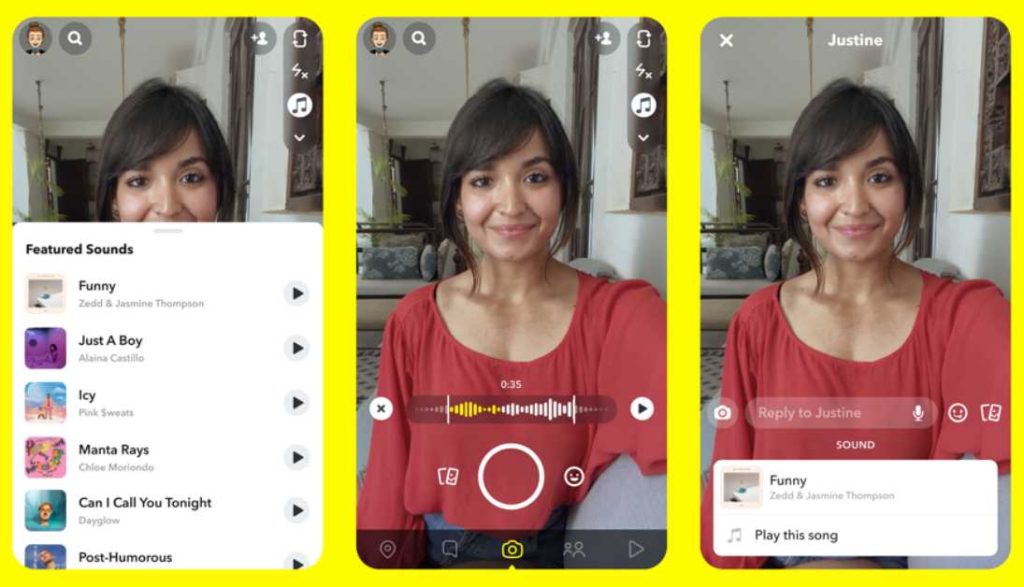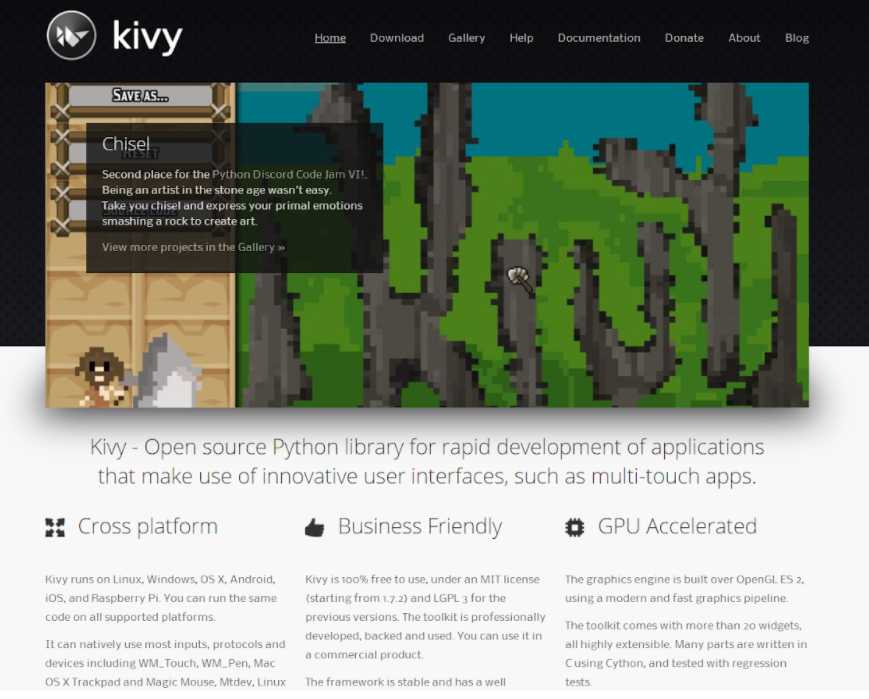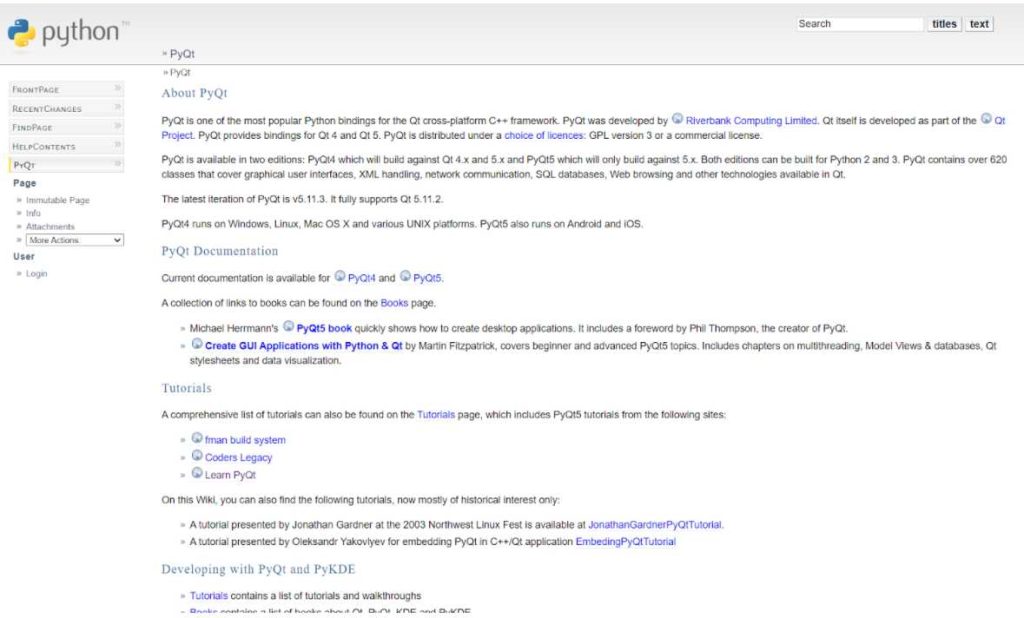Table of Content
In the past, python app development wasn’t something mobile app developers commonly associated with mobile applications.
That’s because, with programming languages like Java, Kotlin, and Swift dominating the mobile app development realm, Python isn’t one that crossed many minds. Additionally, Python isn’t recognised by both the dominant mobile operating systems – iOS and Android – as an official programming language.
However, things have changed, and many apps you currently use are programmed using Python. Even though it requires more time and effort as compared to languages like Java, Python has numerous robust features that would make the official programming languages jealous.
In this article, we’ll take a look at how app development with Python will complement the entire mobile app development process, the types of apps you can build with it and the top development frameworks that will speed up the process.
What Is Python?
Python is a high-level and general-purpose programming language. It supports multiple programming paradigms and is dynamically typed – meaning, it’s a type of programming language that doesn’t require explicit declarations of variables before they are used.
Python is devised to be highly readable and uses English words frequently. Since it’s an interpreted language, you don’t have to compile it before execution. Python can also be easily integrated with Java, C, C++, and COBRA.
Note: Although Python can be used for front-end mobile app development, it’s not really preferred by developers (at least for now); Python is predominantly used for back-end development.
Can Python Be Used for App Development?
In the past, iOS or Android app development wasn’t something pure Python was meant for. That’s because Python wasn’t something that developers chose when they had to develop mobile (graphical user interface) GUI applications.
Although it’s extensively used for software development, mathematics, and system scripting, Python is now equally useful for mobile app development – thanks to specific frameworks. Python can be used for developing APIs and is also a robust programming language to create enterprise mobile applications.
Why Do Developers Love Python?
1. Flexibility
Python is a flexible programming language. You can select the programming style that you’re the most comfortable with and also based on the app you’re planning to develop. You can choose programming styles such as,
- Object-oriented style
- Functional style
- Procedural style
- Imperative style
2. Modularity
The modularity of Python allows you to create different modules of your app, separately, and then combine all the modules into a single application. This will allow you to speed up the development process by assigning different modules to different developers. Towards the end, you can combine all the modules and deploy them as a single application.
3. Speed
Python is an interpreted language, and so, there’s no need for compiling the entire code before execution. Unlike other programming languages that compile the whole code and then return the errors, Python can interpret each line of code as you type and show the errors. This will allow you to finish and execute your code faster.
4. Multiple Platform Support
Along with Android and iOS, Python is compatible with multiple platforms such as Windows, macOS, and Linux. With PyInstaller, you can run the same code across multiple platforms without ever recompiling it.
5. Readability
Python is a programming language that extensively focuses on readability. Developers can use English keywords and can express concepts without writing any additional piece of code. It is also ideal for beginners trying to learn app development.
6. Community Backing
Python has numerous developer community forums where thousands of developers from around the world will assist you in the development process. Along with discussion forums, there are also several tutorials, resources, and documentation available online.
7. Numerous Libraries and Frameworks
Since it’s sponsored by tech giants like Google, Facebook, and AWS, Python has a remarkable collection of libraries and frameworks to choose from. There are numerous library-like tools that offer cross-platform support.
Along with the extensive standard library, Python also supports thousands of third-party open-source libraries. There are numerous libraries that support specific functionality, such as Natural Language Toolkit for natural language processing.
Popular Apps Using Python in Their Backend
1. Instagram
 Image Credit: en.instagram-brand.com
Image Credit: en.instagram-brand.com
2. Spotify
3. Uber
4. YouTube
 Image Credit: androidpolice.com
Image Credit: androidpolice.com
5. Snapchat
Types of Apps You Can Develop Using Python
As previously mentioned, Python is predominantly used for back-end development of mobile apps. Here are some of the types of apps that can be built with Python in their back-end.
1. AI Mobile Apps
With the help of libraries like Pandas, NumPy, and Scikit-Learn, Python is an ideal language for AI mobile apps.
2. System Admin Apps
System administrators will have to perform numerous, monotonous tasks and will also have to manage high volumes of data – also known as big data. Since Python is a programming language already used for the analysis of big data and offers multi-platform support, admin application development will be much more streamlined.
3. Games
Since Python is scalable, it is an excellent choice if you’re considering mobile game development. Python is also a perfect option for developing game designing tools.
4. Entertainment Apps
Some of Python’s libraries, such as OpenCV and PYDUB, are excellent tools to develop entertainment apps that contain audio and video content. As previously mentioned, Netflix, Spotify, and YouTube are some entertainment apps built using Python.
Top Python App Development Frameworks
Currently, there are only a few Python mobile app development frameworks and they are steadily gaining popularity – although there are numerous web frameworks available for Python. Here are four of the best frameworks you can use for developing mobile apps with Python.
1. BeeWare
BeeWare is a Python app development framework that contains a collection of libraries and tools for developing apps in Python for iOS, Android, web, macOS, Windows, Linux, and tvOS with rich and native user interfaces (UIs).
Using a single code base, you can create multiple apps for various platforms offering fully native user experience (UX) – meaning, you don’t have to rewrite the code for each platform. BeeWare is open-source, and its repository is frequently updated.
BeeWare also offers commercial support, such as consulting, training, and technical support. It also has pre-compiled builds of Python, which is incredibly useful on platforms where official Python installers aren’t available yet.
BeeWare also has libraries such as Rubicon Java – which works with Java libraries using Python code. Similarly, there is Rubicon ObjC that works with Objective-C libraries using Python code on macOS and iOS.
2. Kivy
Kivy is another popular Python app development framework used for rapid cross-platform app development. It is a community project by numerous professional software developers, and you can run the same code in multiple platforms, including, Windows, macOS, iOS, Android, and Raspberry Pi.
It’s open-source and is ideal for creating multi-touch apps. Kivy is also suitable for creating enterprise applications and extensively uses Python libraries such as PIL, Cairo, and GStreamer.
Another exciting feature of Kivy is that it supports inputs from devices like Magic Trackpad and Magic Mouse. Although Kivy is 100% free, it’s a toolkit that is professionally developed and tested and can be confidently used to build commercial applications.
Kivy also has a graphics engine built over OpenGL – enabling the framework to handle intensive GPU workloads like a piece of cake. It has specific toolkits that let you port Python applications to iOS or Android. Kivy comes with more than 20 highly extensible widgets. Kivy also comes with a custom-built UI-toolkit that offers buttons, text entry forms, text labels, and more.
100 Days of Fitness, Angry Blocks and Ants Pop are some of the apps made with Kivy.
3. Web2Py
Web2Py is another popular framework used for python mobile app development. It is open-source and comes with extensive documentation and tutorial videos. Web2Py has a debugging and deployment tool – meaning, it will assist developers with mobile testing along with development.
It’s a cross-platform framework and is compatible with multiple operating systems, including Windows, macOS, Android, and Linux. Web2Py also has a ticketing system that issues a ticket whenever an error occurs.
Since Web2Py was initially developed as a teaching tool with emphasis on deployment and ease of use, it doesn’t have any project-level configuration files yet. However, it can reduce numerous, monotonous tasks such as generating web forms from scratch.
4. PyQt
PyQt is a blend of Python programming language and Qt library and is also a GUI widget toolkit. Its latest version, known as PyQt5 is a comprehensive Python binding for Qt v5. Qt is a renowned C++ framework extensively used for writing GUI applications and supports Windows, Linux, macOS, Android, iOS, and Raspberry Pi.
PyQt was developed and is maintained by Riverbank Computing. It consists of more than 600 classes which will cover features such as XML processing, SQL databases, GUIs, and web toolkits.
In Conclusion
Being incredibly flexible, secure, and modular, Python is a programming language that can help developers create robust and scalable applications. Although there are only a handful of frameworks that let you build mobile apps with Python, the numbers are expected to rise, considering the versatility of the language.
If you’re looking for a top-notch Mobile App Developer, your search ends here! One of the renowned Mobile App Developer in Malaysia has what it takes to bring your mobile app ideas come to life. Reach out to them for Free Consultation.









